When AMC’s American post-apocalyptic horror series The Walking Dead began in 2010, it instantly became a global hit. The program, which is based on the comic book series by Robert Kirkman, follows a group of survivors in a world overrun by zombies as they face the challenges of this new reality while attempting to rebuild civilization.
There are several reasons why The Walking Dead became so popular. Its amazing effects, makeup, and engaging narrative created a world that seemed visceral and believable, and its depiction of a zombie apocalypse captured the imaginations of its viewers. In fact, the program delved into weighty philosophical themes like human nature, morality, and the difficulty of making it in a lawless society.
In November 2022, when the series finale aired, a new era in television history came to an end. With its eleven seasons and spinoff, Fear the Walking Dead, The Walking Dead has become one of the most popular programs in television history. Beyond its cultural significance and financial success, the program has left an indelible mark on popular culture. It sparked a flurry of similar works in the horror and post-apocalyptic genres, both in terms of quantity and quality of imitation.
The Walking Dead left a significant mark on television by proving that horror can be done in a way that is both entertaining and thought stimulating, and by demonstrating that a well-made series can hold viewers’ attention for several seasons. The series will go down in history as a landmark of its field, influencing generations of storytellers to probe the depths of human nature.
The Walking Dead has had its ups and downs over its 11-season run. While the show has had some standout seasons and episodes, it has also suffered from pacing issues, repetitive storylines, and uneven character development. However, for fans of the zombie genre, the show remains a compelling and entertaining watch, with strong performances and memorable moments. Let’s dive into the depths of the series, untapping the successes and failures as a whole, and rank each season from worst to best.
11. Season 7
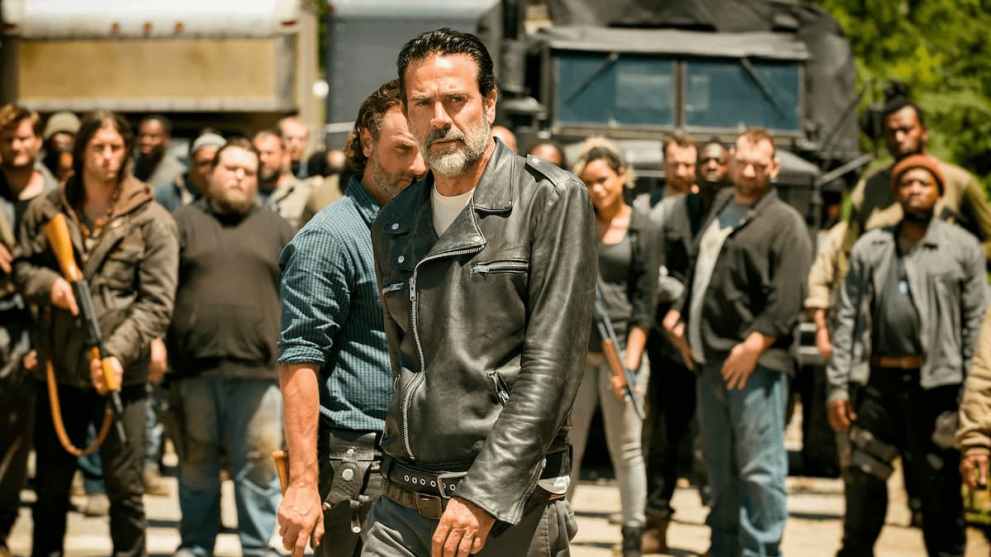
The seventh season of The Walking Dead was a major turning point for the series, as it saw the brutal deaths of several major characters, including Glenn and Abraham, at the hands of the new villain, Negan. The season was marked by a bleak and oppressive tone, as the characters struggled to survive in a world where hope seemed to be in short supply.
While the season did have some standout moments, such as the introduction of the Kingdom and the conflict with Negan, it was often criticized for its excessive violence and slow pacing. Many fans found it difficult to watch their favorite characters being subjected to such brutality, and some felt that the show had lost its way. Additionally, the season was criticized for focusing too heavily on Negan at the expense of other characters, and for not providing enough development for the supporting cast.
10. Season 8

Season 8 of The Walking Dead is often considered one of the weaker seasons of the show, and there are several reasons for this. One of the main criticisms of the season is that it suffers from repetitive storylines and a lack of real stakes. The “All Out War” storyline between Rick and Negan felt drawn out and lacked tension, and some fans felt that the season was simply going through the motions.
Another issue with season 8 was the way it handled certain characters. For example, Carl’s death midway through the season felt like a cheap and unnecessary move that robbed the show of one of its most interesting characters. Additionally, some fans felt that the show mishandled the character of Morgan, who was moved over to Fear the Walking Dead shortly after the season ended.
The season did have some standout moments, such as the introduction of the Scavengers and the reveal of Negan’s backstory in the episode “Here’s Negan”. However, these moments were few and far between, and overall the season felt like a missed opportunity to do something truly interesting with the characters and storylines.
It’s worth noting that the eighth season of The Walking Dead was also affected by behind-the-scenes turmoil, including the departure of showrunner Scott Gimple shortly after the season ended. Some fans felt that this turmoil contributed to the uneven quality of the season, and that a lack of clear direction and vision was evident throughout.
9. Season 6

The sixth season of The Walking Dead had some standout episodes, such as “No Way Out” and “The Same Boat”, but the overall storyline was uneven. The season suffered from a lack of direction and a confusing timeline, with multiple flashbacks and flash-forwards. The cliffhanger ending of the season, which left the fate of a major character unknown, was also controversial among fans.
Despite these issues, there were still some strong moments in the season. “No Way Out” was a particularly intense episode, featuring the death of several characters and the long-awaited arrival of fan-favorite character Jesus. “The Same Boat” was also a tense and emotional episode, which focused on the relationship between Carol and Maggie and their capture by a group of Savior women.
However, the season suffered from some questionable creative choices, such as the drawn-out storyline of Glenn’s supposed death and the excessive use of cliffhangers. The introduction of new characters, such as Heath and Denise, also felt somewhat rushed and underdeveloped. Overall, while there were some standout moments in season 6, the season as a whole felt somewhat disjointed and unfocused.
8. Season 11
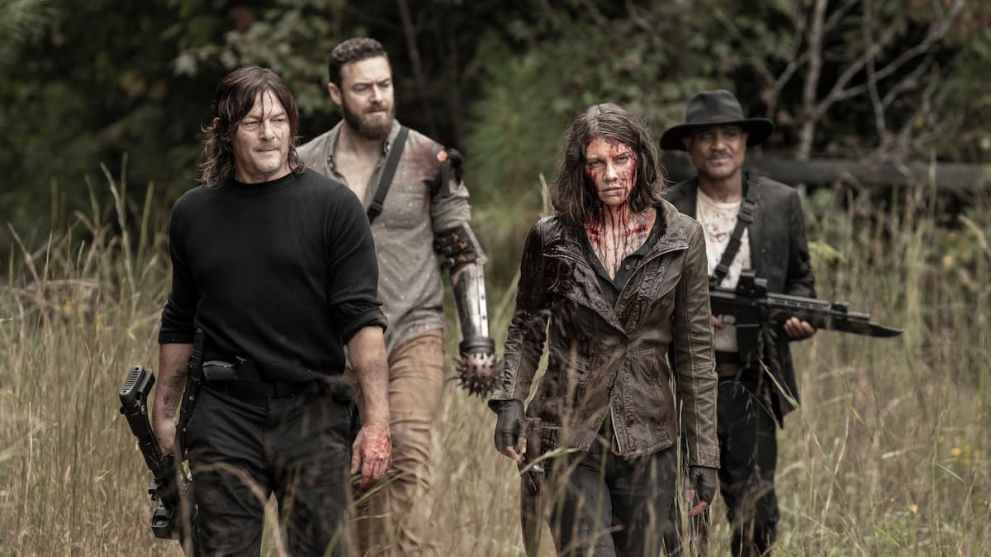
The 11th and final season of The Walking Dead was a bitter-sweet conclusion to the series. The Commonwealth storyline was intriguing, but it felt rushed and incomplete, and the season suffered from pacing issues. However, the season did feature some standout episodes, such as “On the Inside” and “Here’s Negan,” which delved into the backstory of fan-favorite character Negan. The season also provided a satisfying conclusion to the series, with emotional character arcs and a poignant final episode.
However, one of the main weaknesses of the season was its pacing. Some fans felt that the storyline felt rushed and incomplete, particularly in the final episodes, and that some of the characters’ arcs weren’t given enough time to develop. The season also suffered from a lack of direction at times, with some episodes feeling disconnected from the overall narrative.
Despite these weaknesses, the season provided a satisfying end to the series, with emotional character arcs and a poignant final episode that tied up loose ends and gave fans closure. The final season also featured some strong performances from the cast, particularly from Norman Reedus as Daryl and Lauren Cohan as Maggie.
7. Season 3

The third season of The Walking Dead was a mixed bag, with some strengths, but also some notable weaknesses. The introduction of the Governor as the main antagonist was a bold move, and his character was initially intriguing with his charm and charisma. However, as the season progressed, the writing for the Governor became inconsistent and sometimes even confusing. In some episodes, he was portrayed as a manipulative mastermind, while in others he seemed to be losing his grip on power.
Additionally, the season suffered from pacing issues, particularly in the first half. The group was split up into different locations, which made the storytelling feel disjointed and slow. Some of the new characters introduced, such as Michonne and Tyreese, were interesting but didn’t receive enough development to truly shine.
That being said, the season did have some standout moments, particularly in the second half. The Governor’s attack on the prison and subsequent battle was well-executed and provided some intense and emotional scenes. The season finale, which featured the introduction of the mysterious figure known as “The Governor” and the reveal of his true intentions, was a memorable and exciting episode. While season 3 had some significant flaws, it also had some redeeming qualities that made it an important part of the show’s overall narrative.
6. Season 10
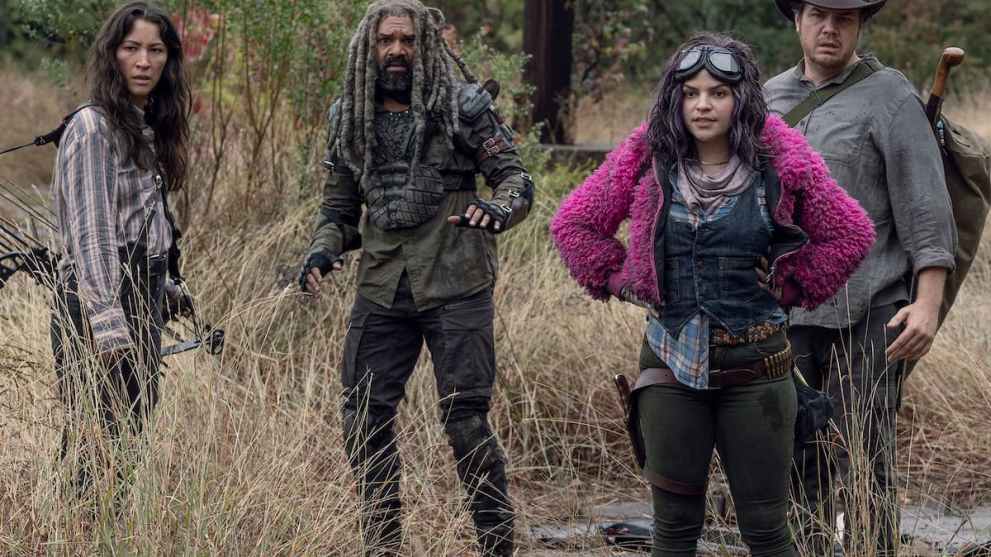
The 10th season of The Walking Dead continued to build on the momentum of season 9, with some standout episodes and compelling storylines. The Whisperer War storyline came to a satisfying conclusion, and the introduction of the Commonwealth provided a new direction for the show to explore. The season also featured some strong performances, particularly from Samantha Morton as the villainous Alpha.
One of the strengths of season 10 was its exploration of the Whisperer War storyline. This storyline had been building since the introduction of the Whisperers in season 9, and it finally came to a head in season 10. The war was a bloody and brutal affair, with several major characters meeting their demise. The season also explored the conflict between the Whisperers and the survivors in more depth, revealing the motivations of both sides and the difficult choices they had to make.
Another highlight of season 10 was the introduction of the Commonwealth. This new community, which is much larger and more organized than any the survivors have encountered before, provided a new direction for the show to explore in its final season. The Commonwealth storyline was intriguing, and it introduced several new characters who added fresh energy to the series.
Morton brought a chilling intensity to her role as Alpha, and her scenes with her daughter Lydia were some of the season’s most memorable. The season also continued to showcase the talents of actors such as Norman Reedus, Danai Gurira, and Jeffrey Dean Morgan, who have been mainstays of the show for many seasons.
5. Season 2

The second season of The Walking Dead was a slow burn, with a lot of time spent on character development and relationship-building. Some fans appreciated this focus on the characters, but others felt that the season dragged on too long.
Season 2 of The Walking Dead is often seen as a divisive season among fans. On one hand, it is praised for its character development and exploration of the group dynamics, but on the other hand, it is criticized for its slow pacing and lack of action.
One of the strengths of the season was the further exploration of Rick Grimes’ leadership and the tensions that arise within the group. The conflict between Shane and Rick came to a head in this season, leading to a dramatic climax. The season also introduced the character of Hershel Greene and his farm, which provided a safe haven for the group but also led to conflicts with outsiders.
However, the slow pacing of the season, with several episodes spent on the farm and little action, led to some fans feeling that the season was dragging on too long. Additionally, some of the character arcs felt repetitive, with Andrea and Dale having similar debates about survival ethics that they had in previous seasons. The season did have some memorable moments, such as the barn massacre and the introduction of fan-favorite character Michonne, but overall it is seen as one of the weaker seasons of the series.
4. Season 5

The fifth season of The Walking Dead saw the introduction of the Alexandria Safe-Zone, which provided a fresh setting and new conflicts for the characters to face. The season also featured some standout episodes, such as “No Sanctuary”, which was a tense and action-packed season premiere. However, the season did suffer from some pacing issues, and some fans felt that the show was starting to repeat itself.
The season started with a gripping and intense premiere, “No Sanctuary”, which set the tone for the rest of the season. The show continued to explore the themes of survival and trust in a post-apocalyptic world, with the group struggling to adapt to their new surroundings and the people who inhabit them.
One of the standout episodes of the season was “Try”, which explored the complex relationships between the characters and the tensions that arise when they are forced to confront their own past traumas. Another notable episode was “Consumed”, which followed Carol and Daryl on a mission to find Beth and delved deeper into their own personal struggles and motivations.
However, the season did suffer from some pacing issues, particularly in the middle of the season when the group’s conflicts with the residents of Alexandria felt repetitive and slow-moving. Some fans also felt that the show was starting to repeat itself, as the group once again faced conflicts with other communities and struggled to maintain their own sense of humanity in a brutal world. While season 5 had its flaws, it is still considered one of the stronger seasons of the show, thanks in part to its fresh setting and continued exploration of complex themes.
3. Season 4
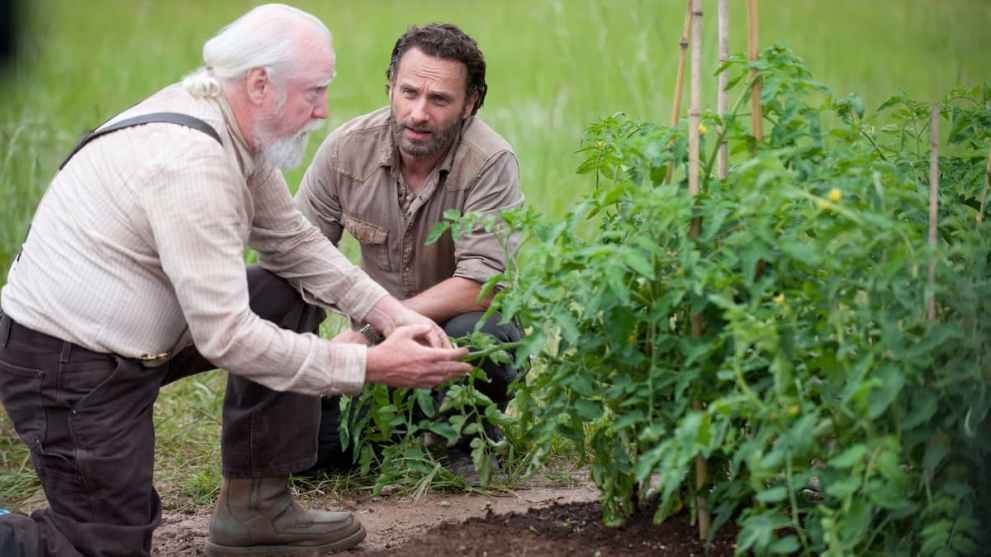
Season 4 is considered a return to form after a somewhat lackluster third season. One of the main reasons why this season is highly regarded is due to the addition of new characters, such as Bob Stookey and Abraham Ford, who inject new life into the show. These characters are well-written and well-acted, and their inclusion allows the show to explore new dynamics and relationships.
The Governor makes the season shine as well, as his storyline finally comes to a satisfying conclusion. The Governor is one of the show’s most iconic villains, and his presence casts a shadow over the entire season. The resolution of his storyline is both emotionally satisfying and thematically resonant, as it highlights the futility of violence and the need for community and cooperation in the face of adversity.
Season 4 is praised for its standout episodes, such as “The Grove,” which is widely regarded as one of the show’s best. This episode features a shocking and heartbreaking twist, and it explores the moral complexities of survival in a world without rules or order. The season also includes other standout episodes, such as “Too Far Gone” and “After”, which further develop the show’s characters and themes. Throughout the season, it successfully builds upon the show’s strengths while also introducing new elements that keep the show fresh and engaging.
2. Season 9

Season 9 of The Walking Dead is regarded as one of the strongest seasons of the series because of its successful reinvention of the show after the departure of several major characters, including Rick Grimes. The introduction of new characters, such as the Whisperers and the Kingdom, injected new life into the show and brought fresh conflicts for the characters to face. Additionally, the time jump allowed for a new perspective on the characters, as we saw how they had evolved in the years that passed since the end of Season 8.
One of the standout episodes of the season was “The Calm Before,” which was a shocking and emotional mid-season finale. The episode saw the brutal deaths of several beloved characters and left fans reeling. The episode also showcased the show’s ability to deliver impactful and emotional moments.
Another reason season 9 is highly regarded is the direction of new showrunner Angela Kang, who brought a fresh energy and direction to the series. Kang’s focus on character development, world-building, and relationships was praised by fans and critics alike, and helped to reinvigorate the show.
Overall, season 9 of The Walking Dead was a successful reinvention of the series, introducing new characters and storylines while still maintaining the show’s core themes of survival and humanity in a post-apocalyptic world. The season’s strong performances, compelling storylines, and emotional moments made it one of the best in the series.
1. Season 1
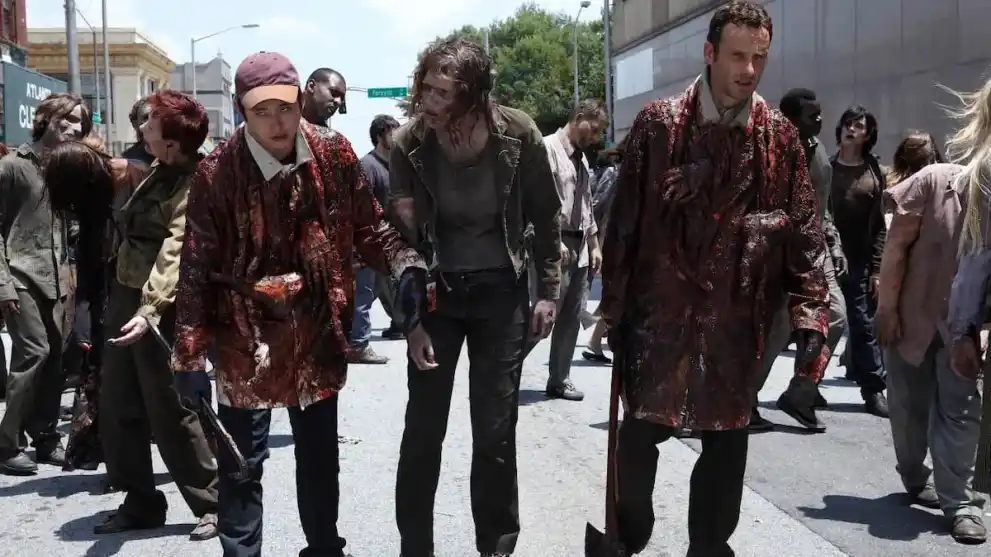
The first season of The Walking Dead was a strong introduction to the post-apocalyptic world and the characters that inhabit it. The season established a sense of danger and tension right from the beginning, with excellent pacing and a compelling storyline. The show benefited from strong performances from its lead actors, particularly Andrew Lincoln as Rick Grimes.
It is considered the best season of The Walking Dead because it effectively introduced the post-apocalyptic world and the characters that inhabit it. The season was able to establish a sense of danger and tension right from the beginning, with excellent pacing and a compelling storyline. The show benefited from strong performances from its lead actors, particularly Andrew Lincoln as Rick Grimes. The season effectively established the themes that the show would explore in subsequent seasons, such as the struggle for survival, the conflict between different groups of survivors, and the moral dilemmas that arise in a world without laws or society.
Season 1 was so effective, right from the opening scene of the first episode, which immediately established the danger and unpredictability of the world, as well as the introduction of the main characters, who were all distinct and compelling in their own ways. The season also had several standout episodes, including “Days Gone Bye”, “Guts”, and “Wildfire”, which effectively explored the characters’ struggles to adapt to the new world and the challenges they faced in trying to survive. Additionally, the season’s finale, “TS-19”, was a tense and emotional episode that effectively wrapped up the season’s overarching storyline while also setting the stage for future seasons.


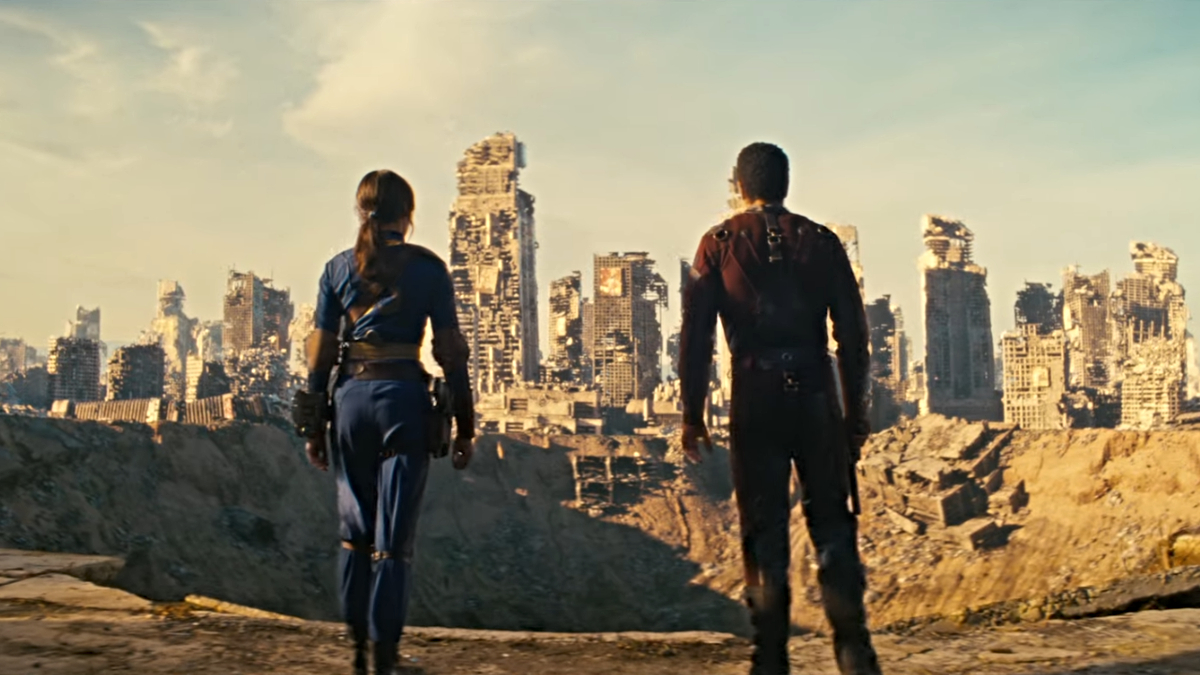

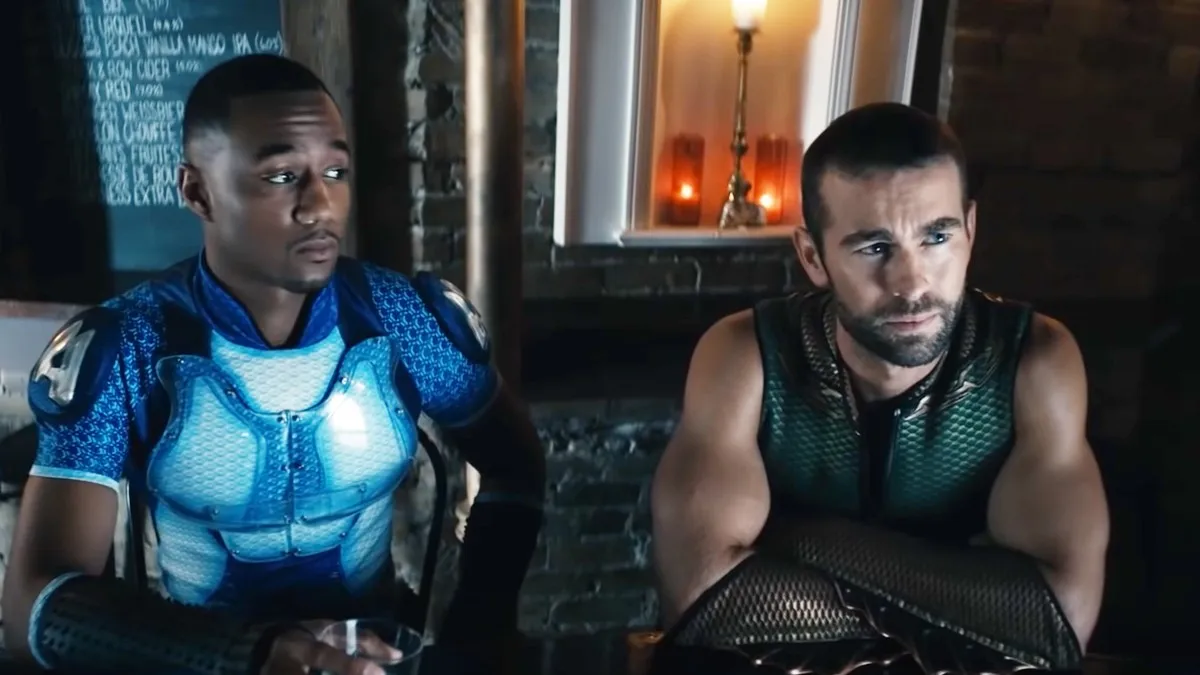








Updated: Mar 16, 2023 01:24 am